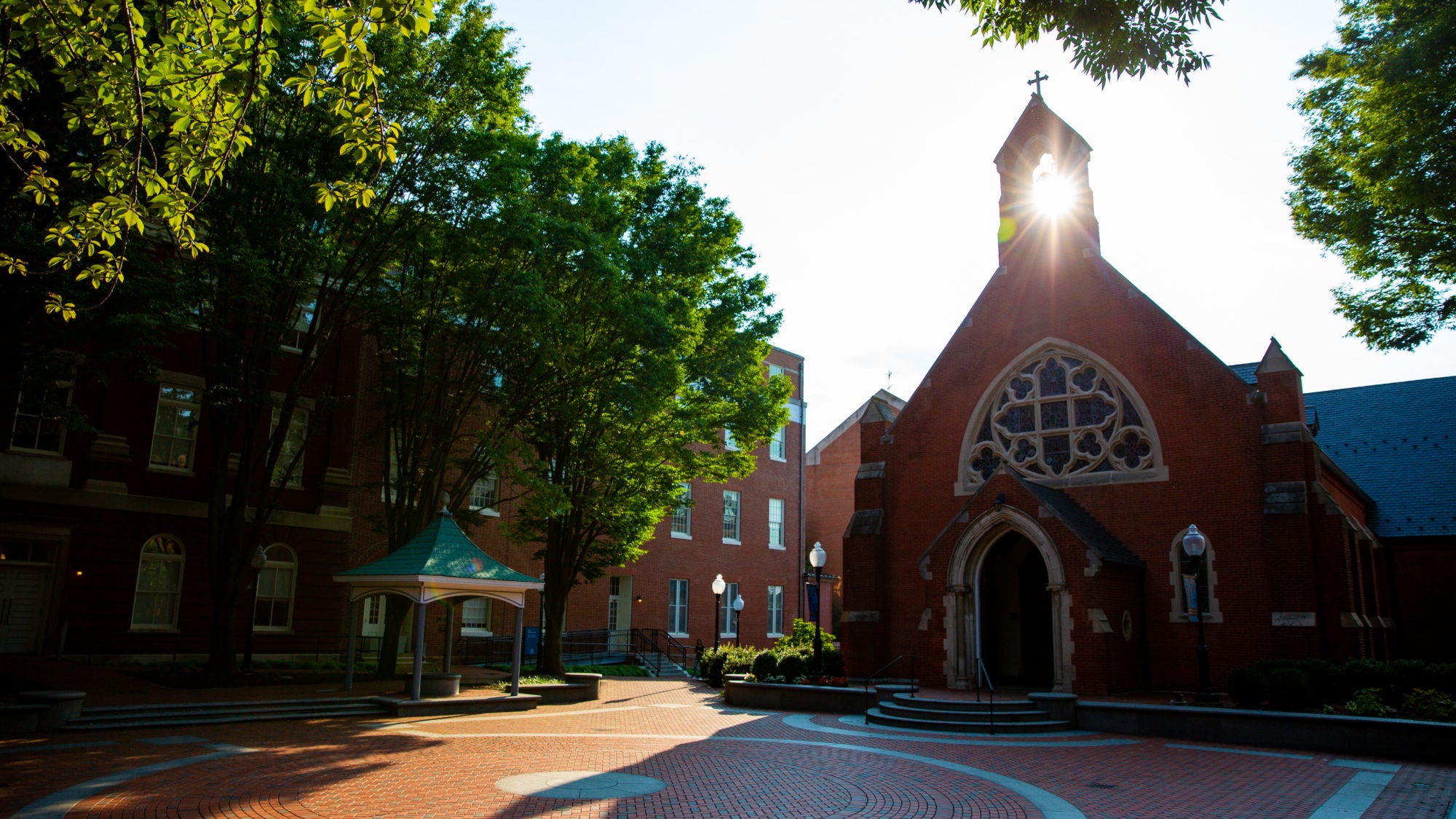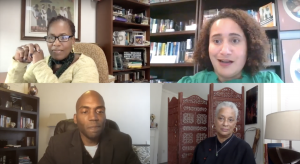Leading Change
At General Congregation 34 in 1995, the Jesuits and the Situation of Women in Church and Civil Society decree acknowledged discrimination against and expressed solidarity with women.
Patricia Grant, senior associate dean at the McDonough School of Business, introduced a panel on women in leadership, which celebrated the 25th anniversary of the decree.
“Working and serving Jesuit higher education is not simply about empty actions, but about reflective practice that collectivizes our conscience for critical transformational action,” said Grant. “This is deeply rooted in our personal commitment to give, serve and engage toward the goal of change for those people in communities that need our intervention and engaged allied support. It’s serious and it’s about faith that does justice.”
José Cabrera, director of education and advocacy for migration at Ignatian Solidarity Network (ISN), described the efforts of the ISN’s Undocu Jesuit Network – a national support group that aims to inform and empower the leadership of undocumented young people.
“This space allows for students to come and to learn about both those quick kind of policy updates and also to understand how are those policies affecting our community,” said Cabrera. “We’re able to then allow those students to be the leaders for the network and how we respond to policies, how we create what a world – what a community – that welcomes immigrants looks like.”
‘Permanent, Accessible Resources’
Originally scheduled to be in-person on Georgetown’s Main Campus last summer, the gathering pivoted to a virtual format over three weeks this June to prevent Zoom fatigue and allow for broad access across time zones and academic calendars.
Each plenary session was followed by Live Zoom “question and response” sessions, each ending with an Ignatian Examen. Andria Wisler, executive director of the Center for Social Justice Research, Teaching & Service and Georgetown’s “local host” of the virtual gathering, co-hosted virtual reflection sessions for Georgetown faculty and staff following each plenary.
The plenary sessions are posted to YouTube, and the poster presentations are posted to YouTube and will be moved to the digital scholarship repository of Lauinger Library.
“The committee’s goal was to create permanent, accessible resources for staff and faculty to use throughout this year of the 500th anniversary of the conversion of St. Ignatius,” said Wisler. “We hope that the YouTube plenaries, the Zoom sessions and the poster presentations will be useful for colleagues across Jesuit higher education in their courses, meetings, retreats, board gatherings, co-curricular activities, immersions and more.”




